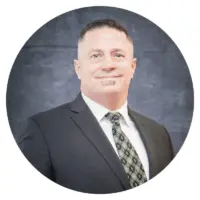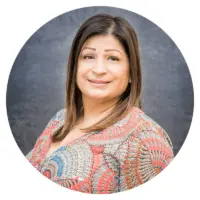About WestCare – Reno Homefront Veterans’ Transitional Living
Homefront Veterans’ Transitional Living in Reno, Nevada provides male and female homeless Veterans with housing and individualized mental healthcare and addiction treatment. They partner with the Veterans Administration (VA) and WestCare Foundation, a nonprofit with over 50 years of experience helping people access the resources they need to rebuild their lives.
Transitional Housing Support in a Family Environment
The 26-bed apartment complex offers 13 two-bedroom units in a safe, stable environment. The program includes treatment planning, financial assistance, and employment support. Veterans also have access to medical and mental health care through the VA.
Everything here is about helping Veterans stay connected and feel supported throughout recovery. Case managers can help with referrals to more intensive addiction treatment programs offered through WestCare.
Weekly life skills groups help residents gain stability. Transportation is provided for appointments, shopping, and community outings.
Even after discharge, the Homefront community is there to offer support. They provide connection and guidance long after residents transition to independent living.
No Veteran Turned Away
Financial barriers should never prevent a Veteran from accessing housing and care. A Nevada State Welfare Outreach Enroller is available onsite to help uninsured Veterans connect with benefits.
By offering safe housing and essential services, Homefront Reno serves as a critical next step for Veterans.
Facility Overview
Latest Reviews
Rehab Score
Location
Other Forms of Payment
Military members, veterans, and eligible dependents have access to specific insurance programs that help them get the care they need. TRICARE and VA insurance can help you access low cost or no cost addiction and mental health treatment. Programs that accept military insurance often have targeted treatment focused on the unique challenges military members, veterans, and their families face.
Addiction Treatments
Levels of Care
Outpatient Programs (OP) are for those seeking mental rehab or drug rehab, but who also stay at home every night. The main difference between outpatient treatment (OP) and intensive outpatient treatment (IOP) lies in the amount of hours the patient spends at the facility. Most of the time an outpatient program is designed for someone who has completed an inpatient stay and is looking to continue their growth in recovery. Outpatient is not meant to be the starting point, it is commonly referred to as aftercare.
Inpatient rehab provides a highly structured and supportive environment for clients at an increased risk of relapse, including clients exiting detox, those in early recovery, and those experiencing crisis. Many inpatient treatment centers offer round-the-clock clinical care. Their principal treatment modality is usually psychotherapy, including individual, group, and family counseling. Clients may also participate in extensive life skills training to support their long-term sobriety. Some rehabs offer holistic therapies, including massage, meditation, and nutrition therapy.
Clients receiving addiction treatment in an intensive outpatient program (IOP) typically have completed inpatient rehab or have chosen to forgo hospitalization following detox. The high-level care provided by intensive outpatient rehabs is particularly suited to clients in early recovery, those in crisis, and those at an elevated relapse risk. Clients engage in nine to 20 hours of treatment per week on average. Common services include psychotherapy, recovery education, holistic therapies, and medication assisted treatment (MAT).
A partial hospitalization program (PHP) provides short-term, intensive rehab for individuals that require intensive care but don't require it 24/7. PHP treatment offers structured programming, often involving a combination of individual and group therapy sessions. Typically, a partial hospitalization program meets for an average of 90 days with sessions taking place 3-5 days a week for a minimum of 20 hours. While some PHP treatment provides on-site accommodation, others allow you to return home.
Treatments
Mental health rehabs focus on helping individuals recover from mental illnesses like bipolar disorder, clinical depression, anxiety disorders, schizophrenia, and more. Mental health professionals at these facilities are trained to understand and treat mental health issues, both in individual and group settings.
Specialized substance abuse treatment in Nevada can support individuals who need help for substance abuse. Care levels include outpatient, inpatient, and partial hospitalization programs. By incorporating evidence-based therapies such as cognitive-behavioral therapy (CBT), dialectical behavior therapy (DBT), counseling, clinicians can help you to get to the root cause of your addiction and equip you with the tools to maintain your recovery.
In Nevada, dual-diagnosis addiction treatment programs provide integrated care for individuals with co-occurring substance use disorders and mental health conditions. Outpatient and inpatient programs generally include individual and group therapy, recovery support groups, dialectical behavioral therapy, trauma-informed care, and skills workshops to treat both disorders successfully. Dual-diagnosis treatment can improve long-term recovery success and improve mental health, making your life and sobriety more manageable.
Programs
Adult rehab programs include therapies tailored to each client's specific needs, goals, and recovery progress. They are tailored to the specific challenges adult clients may face, including family and work pressures and commitments. From inpatient and residential treatment to various levels of outpatient services, there are many options available. Some facilities also help adults work through co-occurring conditions, like anxiety, that can accompany addiction.
Serving in the military is both mentally and physically challenging, and can result in trauma that persists even after combat ends. Military programs are tailored to the specific and often complex needs of active duty personnel, veterans, and military families. Clients often access these programs through the U.S. Department of Veterans Affairs (VA).
Rehabs for women provide a safe, nurturing space for female clients to heal. These treatment programs consider the specific obstacles that women can face during recovery and place a special emphasis on mental, social, physical, and reproductive health. They explore how each woman's experience has shaped the trajectory of their substance use, addressing issues such as sexual abuse and past trauma.
Clinical Services
Group therapy is any therapeutic work that happens in a group (not one-on-one). There are a number of different group therapy modalities, including support groups, experiential therapy, psycho-education, and more. Group therapy involves treatment as well as processing interaction between group members.
In individual therapy, a patient meets one-on-one with a trained psychologist or counselor. Therapy is a pivotal part of effective substance abuse treatment, as it often covers root causes of addiction, including challenges faced by the patient in their social, family, and work/school life.
Life skills trainings involve all the skills a person must have in order to function successfully in the world. These include time management, career guidance, money management, and effective communication. Truly successful addiction recovery is based on the ability to not only live substance-free, but to thrive. Life skills teaches the practical necessities of functioning in society, which sets clients up for success in life, and therefore sobriety.
Amenities
-
Private Setting
-
Residential Setting
Staff & Accreditations
Staff

Leo Magrdichian, LCSW, LCADC, LCADS-S
Regional VP

Irma Magrdichian, BA, CADC
Director of Residential Services

Amanda Henderson, MS, CPC-Intern, LADC-S, LADC
Regional Administrator-Western Region

Gardis L. Canty
Director of Community Health Services, Maryland Parkway

Edgar Salcido
Program Director, Harris Springs Ranch
Accreditations

The Commission on Accreditation of Rehabilitation Facilities (CARF) is a non-profit organization that specifically accredits rehab organizations. Founded in 1966, CARF's, mission is to help service providers like rehab facilities maintain high standards of care.
CARF Accreditation: Yes
Contact Information
316-340 Maine St,
Reno, NV 89502
